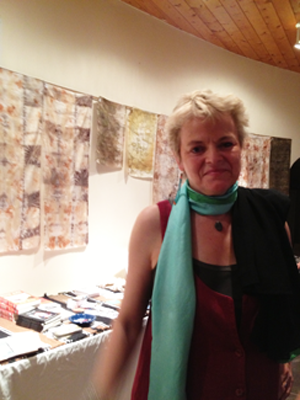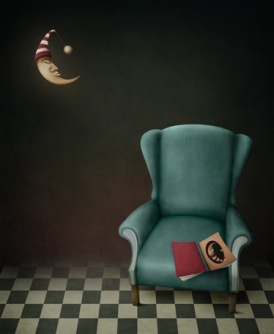Quote of the Week
Award-winning writer and playwright Ellen McLaughlin often turns to Greek myths for inspiration. “One of the things I love about the Greeks is that there is no orthodoxy, no sacred text,” she says, “the story is told according to the storyteller.” Some of her adaptations of Greek classics—Iphigenia and Other Daughters, The Trojan Women, Helen, The Persians, Oedipus, and Lysistrata—are collected in The Greek Plays. Her plays also include Days and Nights Within, A Narrow Bed, Infinity’s House, Tongue of a Bird, Ajax in Iraq, Kissing the Floor, Penelope, and Septimus and Clarissa, an adapation of Virginia Woolf’s novel Mrs. Dalloway.We have always been the storytellers, we are the mothers, after all, the ones who speak the cultural narrative and teach it through … well, old wives’ tales, which is to say, the ancient, subversive, and immediate mother tongue, the language of metaphor and myth.—Ellen McLaughlin
During her keynote address at the AROHO Retreat—that’s where the quotes in this post come from—she told us stories of “the guardians of every important threshold in myth, the monsters who make demands upon the traveler who seeks the transfiguration of real adventure.” She likened her writing process to a meeting with the monster at the center of the labyrinth and said she thinks of narrative as “a red thread.” Just as Ariadne gives Theseus a thread to lead him through the labyrinth, where he slays the Minotaur and frees the monster’s captives, writers follow narrative lines along twisting passageways, facing fear of the unknown. That’s what my writing process feels like, especially when I’m starting a new piece.
“The monster knows something that must be brought out into the light of consciousness,” Ellen told us. “But the adventure is daunting to consider; just about anything would be easier. Who wants to head into the darkness and encounter such a creature? How is it even done? Luckily, we have all of mythology, every story that has ever been told and every writer who has ever come before us, to show us the way. It’s just a matter of getting the red thread of narrative firmly in hand.”
Ellen is also an actor, perhaps best known for originating the role of the Angel in Tony Kushner’s Angels in America; she appeared in every U.S. production of the play through its run on Broadway. One night at AROHO, she read us scenes from her plays. What a treat! A surprising night of theater. After her reading I bought some of her plays and have just finished reading The Trojan Women. I feel an affinity for her work and her feminist perspective. She’s a powerful writer.
- In mid-November Ellen will lead a master class at Hedgebrook for writers in all genres, “Hearing Voices: The Uses of Dialogue.” She has taught at Yale School of Drama, Princeton, and in many other venues. Since 1995 she has taught playwrighting at Barnard College in New York. This is a rare opportunity to work with her, and now is the time to apply.
- In this video she reflects on the effect Angels in America had on its audience.
- Here’s an article about The Trojan Women at the Aurora Theater in Berkeley in 2008.
- Ellen McLaughlin discusses theater and democracy, empathy and the Greeks in this excerpt from her 2009 Commencement Address to the students at A.R.T.
- Read Sørina Higgins’s 2010 interview with Ellen McLaughlin.
- Read about the world premier of Penelope in 2012.
- Ellen’s plays are available at Playscripts.
- The Greek Plays is available here.
See more quotes about writing here.



0 Comments